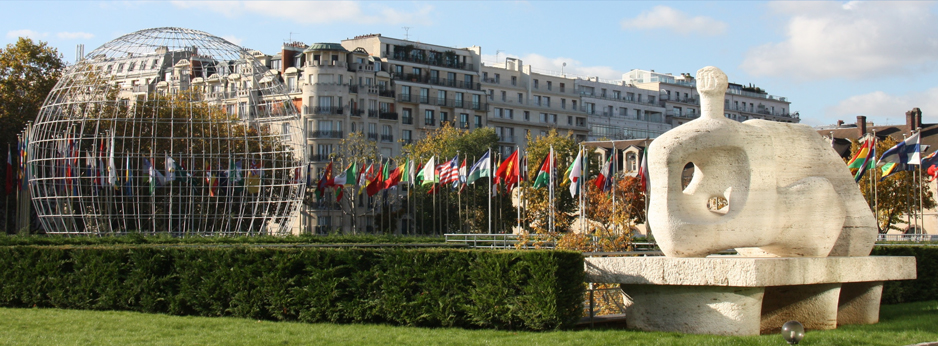
What Is UNESCO?
UNESCO is the United Nations Educational, Scientific and Cultural Organization and was established in London, England on 16th November, 1946. It seeks to build peace through international cooperation in Education, the Sciences and Culture. UNESCO’s programmes contribute to the achievement of the Sustainable Development Goals defined in Agenda 2030, adopted by the UN General Assembly in 2015. As of 2018, it comprises of 193 Member States and 11 Associated Members. Malaysia became a member of UNESCO in 1958.
Mission and Mandate
UNESCO develops educational tools to help people live as global citizens free of hate and intolerance. UNESCO works so that each child and citizen has access to quality education. By promoting cultural heritage and the equal dignity of all cultures, UNESCO strengthens bonds among nations. UNESCO fosters scientific programmes and policies as platforms for development and cooperation. UNESCO stands up for freedom of expression, as a fundamental right and a key condition for democracy and development. Serving as a laboratory of ideas, UNESCO helps countries adopt international standards and manages programmes that foster the free flow of ideas and knowledge sharing.
UNESCO’s founding vision was born in response to a world war that was marked by racist and anti-Semitic violence. Seventy years on and many liberation struggles later, UNESCO’s mandate is as relevant as ever. Cultural diversity is under attack and new forms of intolerance, rejection of scientific facts and threats to freedom of expression challenge peace and human rights. In response, UNESCO’s duty remains to reaffirm the humanist missions of education, science and culture.
Director-General of UNESCO

Audrey Azoulay was elected as Director-General of UNESCO during the 39th session of UNESCO’s General Conference. She took office on 15 November for a four-year term.
With a longstanding commitment in favour of intercultural and intergenerational dialogue to advance education for all and the dissemination of scientific and cultural knowledge, she is determined to maintain this commitment as the head of UNESCO.
She will spare no effort in ensuring that UNESCO fulfils its universal mandate fully in promoting values of humanism and openness and serving as a driving force in the United Nations system. The Organization is to achieve this by serving as an intellectual forum for the world of tomorrow, and as a standard-setter that will help society advance, as well as serving as an expert agency contributing to the dissemination of knowledge to the greatest number of people worldwide.
Governance
The General Conference
The General Conference consists of the representatives of UNESCO’s Member States. It meets every two years, and is attended by Member States and Associate Members, together with observers for non-Member States, intergovernmental organizations and non-governmental organizations (NGOs). Each country has one vote, irrespective of its size or the extent of its contribution to the budget.
The General Conference determines the policies and the main lines of work of the Organization. Its duty is to set the programmes and the budget of UNESCO. It also elects the Members of the Executive Board and appoints, every four years, the Director-General. The working languages of the General Conference are Arabic, Chinese, English, French, Russian and Spanish.
The Executive Board
The Executive Board ensures the overall management of UNESCO. It prepares the work of the General Conference and sees that its decisions are properly carried out. The functions and responsibilities of the Executive Board are derived primarily from the Constitution and from rules or directives laid down by the General Conference.
Every two years the General Conference assigns specific tasks to the Board. Other functions stem from agreements concluded between UNESCO and the United Nations, the specialized UN agencies and other intergovernmental organizations.
The Executive Board’s fifty-eight members are elected by the General Conference. The choice of these representatives is largely a matter of the diversity of the cultures they represent, as well as their geographic origin. Skilful negotiations may be needed before a balance is reached among the different regions of the world in a way that will reflect the universality of the Organization. The Executive Board meets twice a year.
The Secretariat
The Secretariat is the Executive Branch of the organisation. It consists of the Director-General and the Staff appointed by him or her. The staffs are divided into Professional and General Service categories. About 700 staff members work in UNESCO’s 65 field offices around the world.
